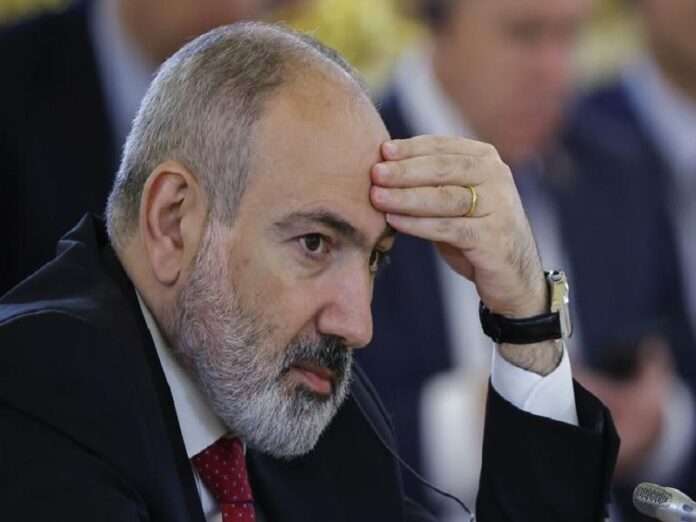Large-scale protests are taking place in Yerevan in response to Prime Minister Pashinyan’s peace push with Azerbaijan, which saw him return four previously occupied villages to that neighboring nation as a goodwill gesture designed to advance their border delimitation process. Some of the locals strongly disapproved of his unilateral initiative, including Archbishop Bagrat Galstanyan, who set out on foot for the capital where he then changed his demands from freezing this process to outright regime change.
This latest regional unrest is taking place in parallel with the ongoing large-scale protests in neighboring Georgia over that country’s FARA-inspired foreign agents law, which this analysis here explained are also aimed at regime change with the intent of advancing the US’ envisaged regional plans. They want to turn Armenia into their bastion of influence for dividing-and-ruling the South Caucasus, but this first requires turning Georgia into a puppet state in order to facilitate military logistics to that landlocked country.
Without any reliable means for ensuring the aforesaid, Pashinyan has no reason to risk provoking another war with Azerbaijan over their disputed border territories as a means of implementing his new Western patrons’ regional plans, ergo why he got cold feet and is now exploring peace. The US is upset that he won’t give them more time to overthrow the Georgian government, likely because he’s panicking in the face of Azerbaijan’s military superiority, so they now want to overthrow him too.
To that end, the ultra-nationalist Armenian diaspora is functioning as the tip of the spear in collusion with those foreign intelligence-backed “NGOs” that infiltrated its society since Pashinyan rose to power through his “Velvet Revolution”, thus presenting a serious Color Revolution challenge. The information warfare narrative is that he’s betraying his country’s national interests, which they subjectively define as reviving their failed “Greater Armenia” plan by going to war with Azerbaijan once again.
Accordingly, they demand that he immediately step down or be deposed (whether through parliamentary or unconstitutional means), all with the intent of replacing him with a fully compliant Western puppet that’ll prepare for another war with Azerbaijan at a future time with NATO support. For its part, Azerbaijan already sees the writing on the wall, which is why it might decisively act via kinetic means in defense of its objective national interests to thwart this plot before it materializes.
The pressure that it’s now putting on Pashinyan with a view towards preemptively averting this worst-case scenario is likely the reason why he finally decided to explore peace after refusing to do so in any serious sense over the past three and a half years. Observing this, the US then decided to give its regime change operation in Georgia another shot, after which they then greenlit the ongoing one against Pashinyan after it became clear that their latest efforts didn’t influence him to freeze the peace process.
All in all, the US is on the backfoot in the South Caucasus, but it still has enough influence in Armenian and Georgian society via the ultra-nationalist diaspora and the “Georgian Legion” to throw those two into chaos if its plans fail. Depending on the outcome of these ongoing regime change campaigns, Azerbaijan and Russia might feel compelled to take action in Armenia and Georgia respectively in defense of their legitimate interests so as to preempt a wider war, thus further complicating matters.
